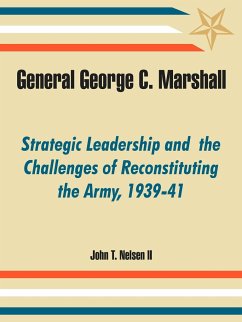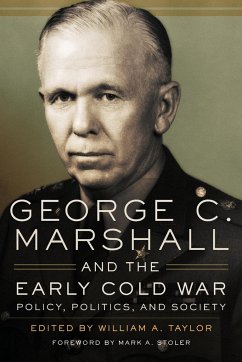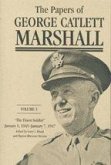The study of strategic leadership as a formal, analytical concept is relatively new. Therefore, concrete, historical examples of leaders who have wrestled with the width and breadth of strategic-level challenges are of inestimable value. Such examples not only help to enrich the general understanding of the concept, but also inoculate the associated discussions against becoming overly abstract, esoteric, or idealistic. In this connection, the study of General George C. Marshall, covering his pre-World War II service as Army Chief of Staff, 1939-41, is as inspirational as it is illustrative. Marshall began his tour of duty at a time when the Army was isolated politically and institutionally, when it was profoundly undermanned and poorly equipped, and when the prospects for improving this dismal situation were far from encouraging. In the ensuing 2 1/2 years, the Army's posture changed dramatically for the better, largely through Marshall's Herculean efforts to prepare for the kind of war he saw threatening on the horizon. In effect, he "reconstituted" the Army. It is no exaggeration to say that Marshall enabled America to enter the war with a distinct "running start" in terms of military preparedness - something this country had never before succeeded in doing. Marshall's contributions were no accident of history. They resulted from the exercise of effective strategic leadership, consciously and consistently applied across a broad spectrum of activities and interests. This study analyzes the nature and effects of that leadership and captures the magnitude of Marshall's achievements as a strategic leader during what were frequently regarded as the unglamorous prewar years. William A. Stofft Major General, U.S. Army Commandant
Hinweis: Dieser Artikel kann nur an eine deutsche Lieferadresse ausgeliefert werden.
Hinweis: Dieser Artikel kann nur an eine deutsche Lieferadresse ausgeliefert werden.








